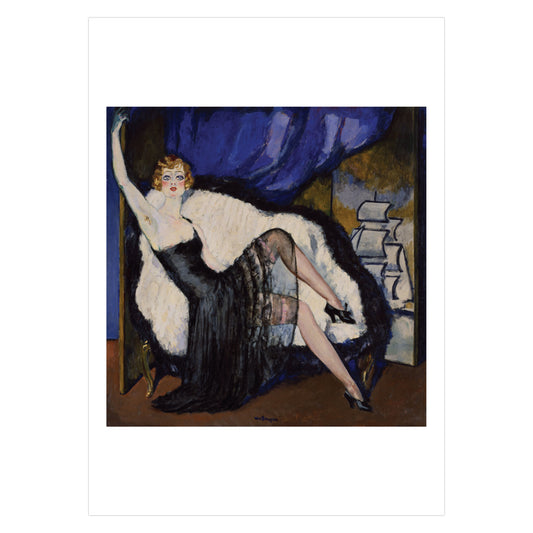
About the Artist
Kees van Dongen
The Dutchman Kees van Dongen was, perhaps, the most spirited of the Fauve painters. His heavy, fast-paced life surpassed even the Fauves' exuberant vision of joie de vivre. "I have always played," he once jested. "Painting is nothing but a game." His early art was indeed playful and very chic, a sophisticated blend of boisterous Fauve hues and sensual outline.
After some rudimentary artistic training in Rotterdam, Van Dongen settled in Paris in 1897. His paintings sold poorly at first, and he took a number of colorful odd jobs—wrestler, newspaper vendor, longshoreman—to support himself. His artistic career began in earnest in 1904-05, when he exhibited with the art dealer Ambroise Vollard and at the "Fauve" Salon d'Automne. He soon became the toast of Montmartre, hosting a series of raucous parties for the artistic and social elite of Paris.
After World War I, Van Dongen renounced the hot colors of his earlier works for a chillier palette of steely blues and greens. He maintained his social prominence, and with his many portraits of the rich and famous of Paris—actors, politicians, international society beauties and celebrated women of the evening—he captured all the glitter and glamour of the Folle Epoque, the French Roaring '20s.
Among the most arresting of these portraits is the seductive Mlle Monna Lils, which Van Dongen exhibited in Paris at the 1929 salon of the Société National des Beaux-Arts. In the painting a worldly demimondaine—a heavily rouged "china doll" dressed for dancing—reclines on a couch with predatory abandon, her body set against her fur-lined cape like a costly jewel encased in velvet. "I love everything that shines," Van Dongen once declared, "precious stones that sparkle, fabrics that bristle, beautiful women who inspire carnal desire. And painting gives me the most complete possession of that."
Kees van Dongen items in the Shop
-
Tarjeta postal: "Femme du Monde", de Kees van Dongen
Precio habitual £0.95 GBPPrecio habitualPrecio unitario / por

